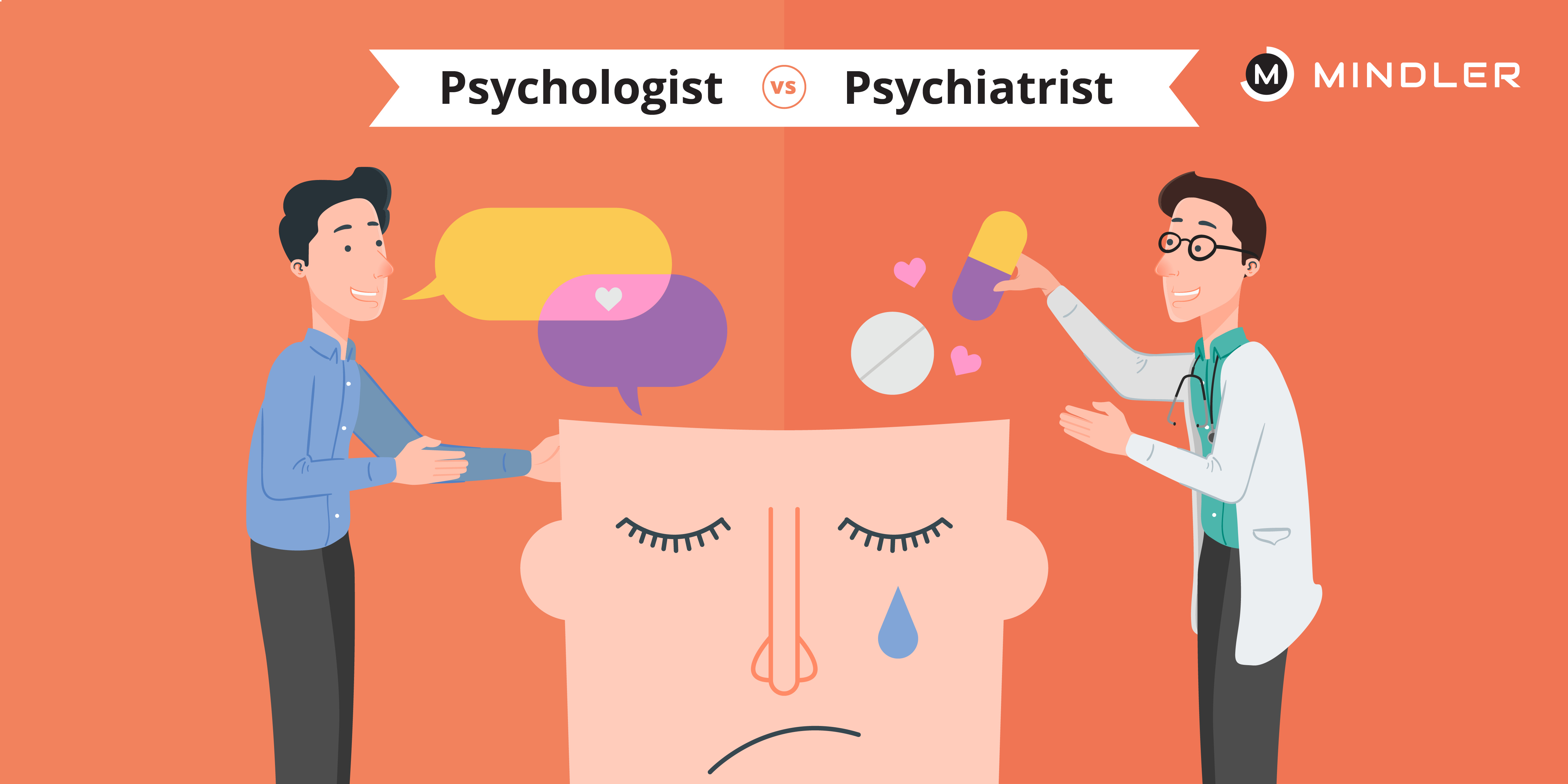Psych Treatment: A Comprehensive Guide to Outcomes and techniques

Cognitive-Behavioral Therapy
Cognitive-Behavioral Therapy (CBT) is a widely used psychotherapeutic technique that focuses on recognizing and customizing inefficient thinking and actions patterns. Established in the 1960s by Aaron T. Beck, CBT integrates cognitive and behavioral theories to attend to different psychological health and wellness issues, consisting of anxiety, anxiety, and stress-related conditions. The premise of CBT is that maladaptive ideas add to psychological distress and maladaptive actions. By restructuring these thoughts, people can achieve considerable improvements in their psychological well-being and everyday performance.
CBT is identified by its organized, ambitious nature. Therapy generally includes a collective process between the therapist and client, where particular issues are determined, and functional methods are created to resolve them. Strategies such as cognitive restructuring, direct exposure treatment, and skill-building exercises are typically employed. Cognitive restructuring involves challenging and altering adverse idea patterns, while direct exposure treatment aims to reduce fear and anxiety with steady exposure to been afraid situations or objects.
Evidence-based research sustains the efficacy of CBT for a variety of mental disorders - Best Psychologist in Delhi. Its focus on skill purchase and self-help methods empowers customers to continue progression separately after therapy ends. The adaptability and performance of CBT have made it a keystone in contemporary psychotherapeutic technique
Psychodynamic Techniques
Rooted in the early theories of Sigmund Freud, psychodynamic approaches concentrate on exploring the subconscious mind and its influence on habits and feelings. These approaches intend to reveal surprise thoughts and feelings that might be driving maladaptive behaviors and emotional distress. Central to this approach is the idea of internal conflict, usually coming from unsolved past experiences, especially those from childhood.
Therapists using psychodynamic strategies utilize numerous essential techniques, consisting of totally free organization, where patients are encouraged to talk openly to reveal unconscious material, and desire evaluation, which translates the concealed web content of desires. Additionally, the exploration of transference and countertransference characteristics within the healing partnership is essential. These communications can supply understandings right into the person's internal world and relational patterns.
Psychodynamic therapy is usually longer-term contrasted to various other methods, supplying a deep and comprehensive understanding of the individual's mind. Research study suggests that it can be especially reliable for intricate psychological wellness concerns, such as individuality problems and persistent clinical depression. By cultivating self-awareness and psychological understanding, psychodynamic treatment seeks to bring unconscious material to consciousness, enabling people to attain lasting and meaningful adjustment in their lives.
Humanistic Strategies
Structure on the foundations laid by psychodynamic methods, humanistic techniques offer a distinctive viewpoint concentrated on private potential and self-actualization. Coming from the mid-20th century, these strategies focus on the fundamental goodness and development capacity of individuals, highlighting an alternative view of human helpful resources experience. Key numbers such as Carl Rogers and Abraham Maslow have considerably influenced this therapeutic strategy, which includes techniques like client-centered therapy and Gestalt treatment.
Client-centered treatment, developed by Rogers, plays a crucial function in humanistic strategies. The therapist's duty is more of a facilitator than an authority, motivating customers to harness their inner sources for healing.
Gestalt therapy, an additional important humanistic strategy, emphasizes present minute awareness and the integration of mind and body. By concentrating on the "present moment," clients get greater insight right into their current emotions and habits. Strategies such as role-playing and directed visualization are usually utilized to assist customers gain a deeper understanding of themselves, eventually bring about enhanced self-awareness and satisfaction.
Integrative Treatments
Integrative therapies represent a synthesis of different healing techniques tailored to meet the special demands of each customer. This technique acknowledges the intricacy of human psychology and the complex nature of mental health issues. By integrating aspects from various institutions of psychotherapy-- such as cognitive-behavioral therapy (CBT), psychodynamic therapy, and humanistic techniques-- integrative treatments use an even more all natural and flexible therapy standard.
Practitioners of integrative therapy assess each client's particular requirements, signs, and personal history to develop a personalized treatment plan. This individualized method boosts the capacity for restorative success by attending to the origin of psychological distress and advertising total health. Methods may include mindfulness exercises, cognitive restructuring, and psychological handling, each chosen to target different facets of the customer's problems.
In addition, integrative treatments highlight the therapeutic partnership, seeing the client-therapist bond as an important component of reliable treatment. This relationship click here for info cultivates a helpful environment where customers feel safe to discover and address their problems. The versatility of integrative therapies makes them ideal for a broad variety of problems, including anxiety, anxiety, injury, and interpersonal troubles, thus increasing their applicability and efficiency in diverse scientific settings.

Determining Therapy End Results
Examining the effectiveness of psychiatric therapy is important for both clients and medical professionals to ensure that the therapy is yielding the preferred results. To achieve this, numerous methods and tools are used to determine treatment outcomes methodically. Standard evaluation tools, such as the Beck Depression Stock (BDI) and the Generalized Stress And Anxiety Disorder 7 (GAD-7), supply quantitative information on signs and symptom seriousness and adjustments over time.
In addition to standard devices, qualitative methods like customer self-reports and professional interviews use valuable understandings right into the personal experiences and perceived development of customers. Routinely arranged analyses, typically at the beginning, navel, and end of treatment, aid in tracking the trajectory of improvement or identifying areas needing modification.
End result dimension is not restricted to signs and symptom reduction; it also encompasses practical enhancements in life, navigate to this site such as much better social partnerships, raised work efficiency, and improved general wellness. Modern improvements in digital wellness have actually introduced mobile apps and on-line systems that help with real-time monitoring and responses, further refining the evaluation process.
Eventually, a thorough method to determining treatment results makes sure that therapeutic interventions are effective, efficient, and customized to satisfy the individual requirements of clients, consequently maximizing the overall restorative experience.
Final Thought
Psychiatric therapy offers a multifaceted selection of techniques focused on dealing with particular mental health and wellness issues and enhancing total health. Cognitive-Behavioral Treatment and psychodynamic approaches target dysfunctional thoughts and unconscious impacts, specifically. Humanistic techniques concentrate on personal development and self-actualization, while integrative treatments incorporate multiple techniques for customized therapy plans. Reviewing treatment results with standardized analyses and qualitative approaches makes sure a comprehensive understanding of performance, ultimately directing clients toward enduring psychological wellness enhancements.
From the structured technique of Cognitive-Behavioral Treatment (CBT) to the deep expedition of the unconscious in psychodynamic therapy, each technique brings special advantages. Its focus on skill acquisition and self-help methods equips customers to proceed progression independently after therapy wraps up (Best Psychologist in Delhi). Secret numbers such as Carl Rogers and Abraham Maslow have actually dramatically influenced this therapeutic method, which includes techniques like client-centered treatment and Gestalt treatment
